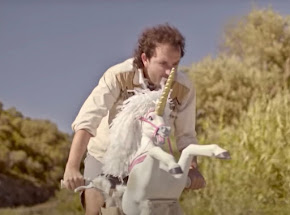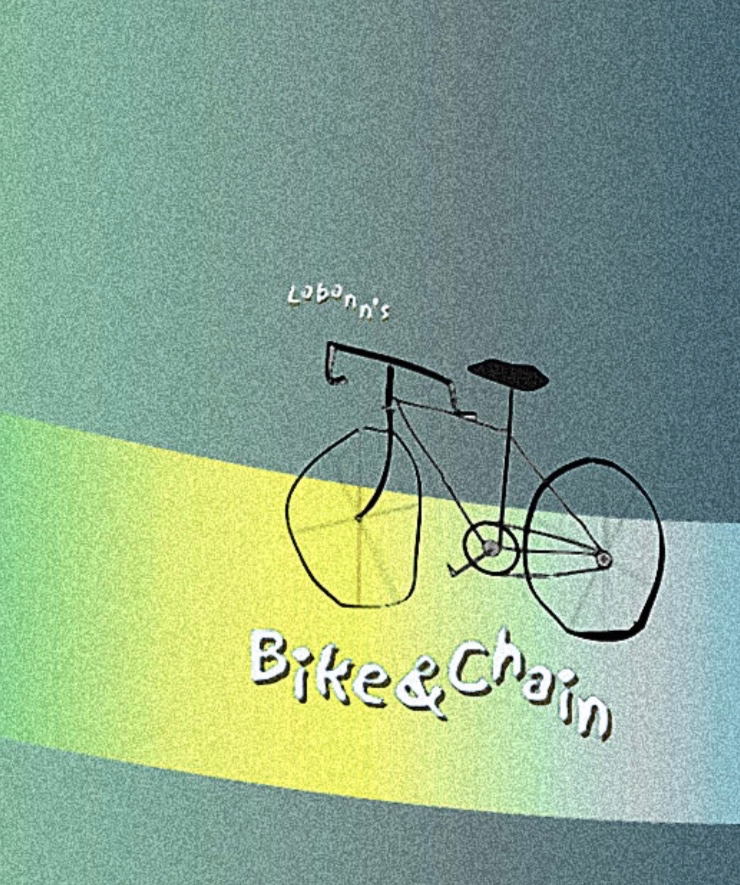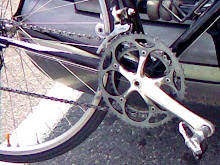Remarkable how in Remembrance of Things Past (aka In Search of Lost Time, 1913–1927, seven volumes celebrating center of its centenary) Marcel Proust found truth in a small tea soaked morsel of petite madeleine. Moreover, much has been made of how a galaxy exists in a grain, and Prout’s observations about what you consciously expect to recollect versus what you involuntarily picture again. Has to do with how incredible, indelible or ineffable an impression becomes. Bicyclist/painter/sculptor Marie Nordlinger (upon whom some argue character Albertine was based in part) became a warm light in Marcel’s luminous but truncated life (51 years, d. 1922) during which this asthmatic bisexual perfected the art of reflection, and wrote 20th Century’s most influential novel. “Marie delighted in riding a bicycle, and it was the image of ‘the girl with the bicycle’ that sparked Proust’s conception of Albertine, a character who dominates Remembrance of Things Past,” in particular volume La Fugitive, 1925.
There’s a book inside every doer/reader/thinker/traveler. Some skilled psychologist might decipher why an author focuses on certain facts, not others. Bias and prejudices blind the willfully delusional from seeing reality as it is. Only the most assiduous and perceptive bother to gather and weigh all sides of any argument, and who has any right to expect otherwise? Any miscreant in social media who sees world as losers or victors will kill you over a minor disagreement.
In court, whoever narrates convincingly and succinctly wins. Deep dives and empty filibusters only succeed in blocking congressional resolutions and maintaining status quo; on street, sincere blather scatters audiences. Fame follows decisive, divisive, feckless, and senseless who steal spotlight, ignores selfless servants or true talent. Journalists say they trust the inherent value of truth in an information age, but you can never tell if what they report is reliable. Not as if there are not hundreds of unsolved mysteries: alien invasion, cryptozoology, supernaturalism. Misfortune of suddenly learning the truth drives even normal men mad.
Seldom, if ever, endorse or rate books. In fact, you can find something interesting in every one even though otherwise a pedestrian waste of your time. Because humans are social animals, they’re best entertained by congregating en masse and selecting suitable individuals with whom to commune. While books expand potential for embracing many tribe members, multiple barriers and perfidious distribution limit readers. Every year dozens of new titles invoke bicycling, but they usually repeat old tropes. B&C, begun long before latest boom, likes to choose among them to review those with a new take on riding a bike.
Marc Augé, In praise of the bicycle (Reaktion Books, Limited, 2019, 96 pp.), translated from French Éloge de la bicyclette, Editions Payot & Rivages, 2008), is an anthropologist’s extrapolation of current trends into a dynamic tomorrow using bicycles to humanize “non-places”, a term Augé famously coined. “Riding a bike in a way gives us back our child's soul and restores both the ability to play and an awareness of the real. It is thus similar to a sort of refresher (like a booster vaccination), but also to continuing education for learning again about freedom and clarity, and as a result, perhaps, about something that resembles happiness... A return to utopia, a return to what is real — they are the same. Get on your bike to improve everyone's life! Cycling is a humanism.”
Paul Fournel, Need for the Bike, (Pursuit, 2019, 224 pp.), derived from Allan Stoekl’s English translation from French (Bison, 2012) of critically lauded Besoin de vélo (Seuil, 2002, 235 pp.), covers personal insights, joys and pains based on articles Fournel contributed to Rouler magazine from 2006 onward. Latest edition was made cheaper and shorter by deleting original illustrations and publishing as a paperback. Must admit that a daily 3 mile walk as an hour’s constitutional will always be improved if you bike 15 miles instead.
Jorge Zepeda Patterson, The black jersey: a novel (Random House, 2019, 312 pp.) portrays French-Colombian domestique Marc, who belongs to an elite Tour de France team led by American star and best friend Steve, favored to win. Then someone machinates a series of deadly accidents. Marc agrees to help gendarmes investigate, but as suspects disappear, main suspects become Marc and Steve. As the finish line approaches, Marc must decide what he's willing to risk for friendship, justice or podium position. With rampant doping, world’s most prestigious contest is rife with jealousies, mayhem, and sabotage, so why not murder?
Yona Zeldis McDonough, The Bicycle Spy (self, 2020) follows young villager Marcel, who delivers bread from his parents' bakery by bike and hopes one day to race in the Tour de France, suspended since 1940 when German occupation began. Checkpoints and interrogations teach Marcel there are worse things than a canceled race. Marcel wonders whether he can help his friend's family when they come under scrutiny, but it would involve passing along secrets through risky rides. Filthy fascists, Hoover's spies, McCarthy's witch hunters, Nixon's army, Reagan's union busters, and Trump's neocons: Hardly any distinction among these enemies of community.
Biological researcher and outdoor naturalist Sara Dykman, Bicycling with Butterflies (Workman Publishing, 2020, 280 pp.) became world’s first to bike alongside and study monarch butterflies throughout a complete migration. She assembled a bike from used parts, attached panniers made from recycled buckets, packed bare essentials, and rode alone on a 3 country, 9-month, 10,000 mile roundtrip. Not just about mucking in fens for flutter-by eggs, she shares her passion with ardent stewards, citizen scientists, eager schoolchildren, high-rise tenants, interested farmers, skeptical loungers, and unimpressed officials.
Jools Walker, blogger and Brit bicyclist Lady Velo, mentioned before pandemic for Back in the Frame: How to get back on your bike, whatever life throws at you (Little Brown Book Group, 2019, 368 pp.), followed up with a reedited paperback sounding pleasanter Back in the Frame: Cycling belonging and finding joy on a bike (Sphere, 2021, 384 pp.), her personal memoire of an all-in-one child tricyclist, preteen BMXer, and renewed roadie who has come of age and still likes bikes. Happily, she now finds herself being interviewed by BBC about cycling culture and giving talks at women’s cycling events. Pedaling by wheel, even casually, is a near panacea and potent tonic for arthritis, cardiovascular ailments, depression, isolation and other maladies caused by a sedentary stay-at-home lifestyle. Bikes are also convenient for hanging your emotional baggage from and studying what's really going on.
In June of 2019 author and pastor Neil Tomba mounted a bike in Santa Monica, CA, and a month later arrived in Annapolis, MD. His goal was twice a day to initiate a conversation with strangers and instill hope among them in Jesus’s teachings. How could that go wrong? Due out next month as a result is The Listening Road: One Man's Ride Across America to Start Conversations About God (Thomas Nelson, 2021, 316 pp.). He’s convinced that people ought to spend time listening to one another, despite differences in creed, intelligence, race, or social status. Every troll says the same thing, only it's you paying attention to them along a one-way street.
Anti-doping activist and multiple medalist James Hibbard retired from road cycling, studied postgraduate philosophy, and wrote a meditation on the sport. Just out this June, The Art of Cycling (Quercus, 2021, 320pp.) shares his journey from racing ruthlessly to regaining passion for pedaling, and shows how cycling can shed new light on classic questions of purpose and selfhood. Cycling’s counterintuitive lessons can be applied to most areas of life and do undermine what’s typically thought of as intellectual in a society driven towards abstract, detached, and virtual dehumanization by an obsession with progress. But wasn’t it a slew of innovations with lowly bicycles (still ongoing) that inspired aerospace and automotive arrogance behind global problems? Without bicycles there would never have been a Nazi blitzkrieg. But you can’t blame invention of weapons with their misuse in mass murders.


















